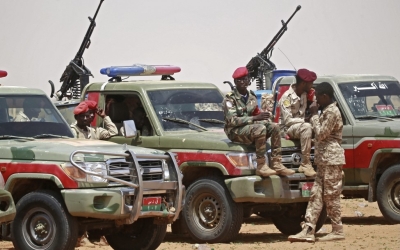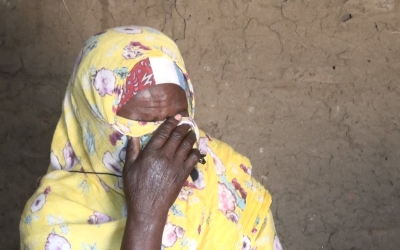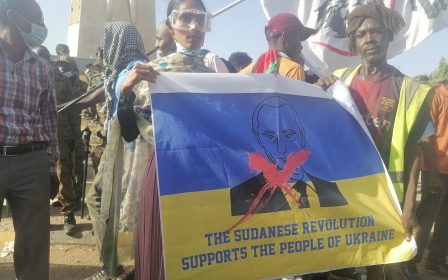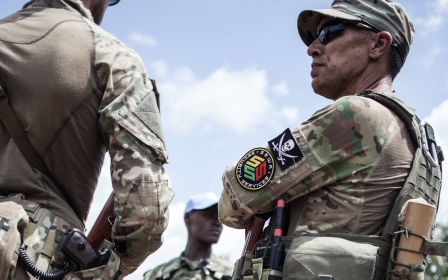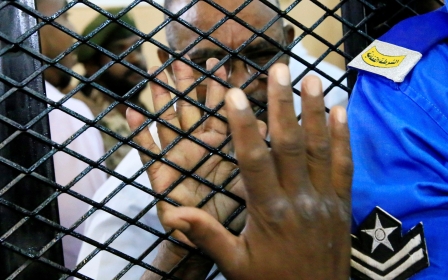Russia's Wagner Group 'getting rich in Sudan' from gold mines and government
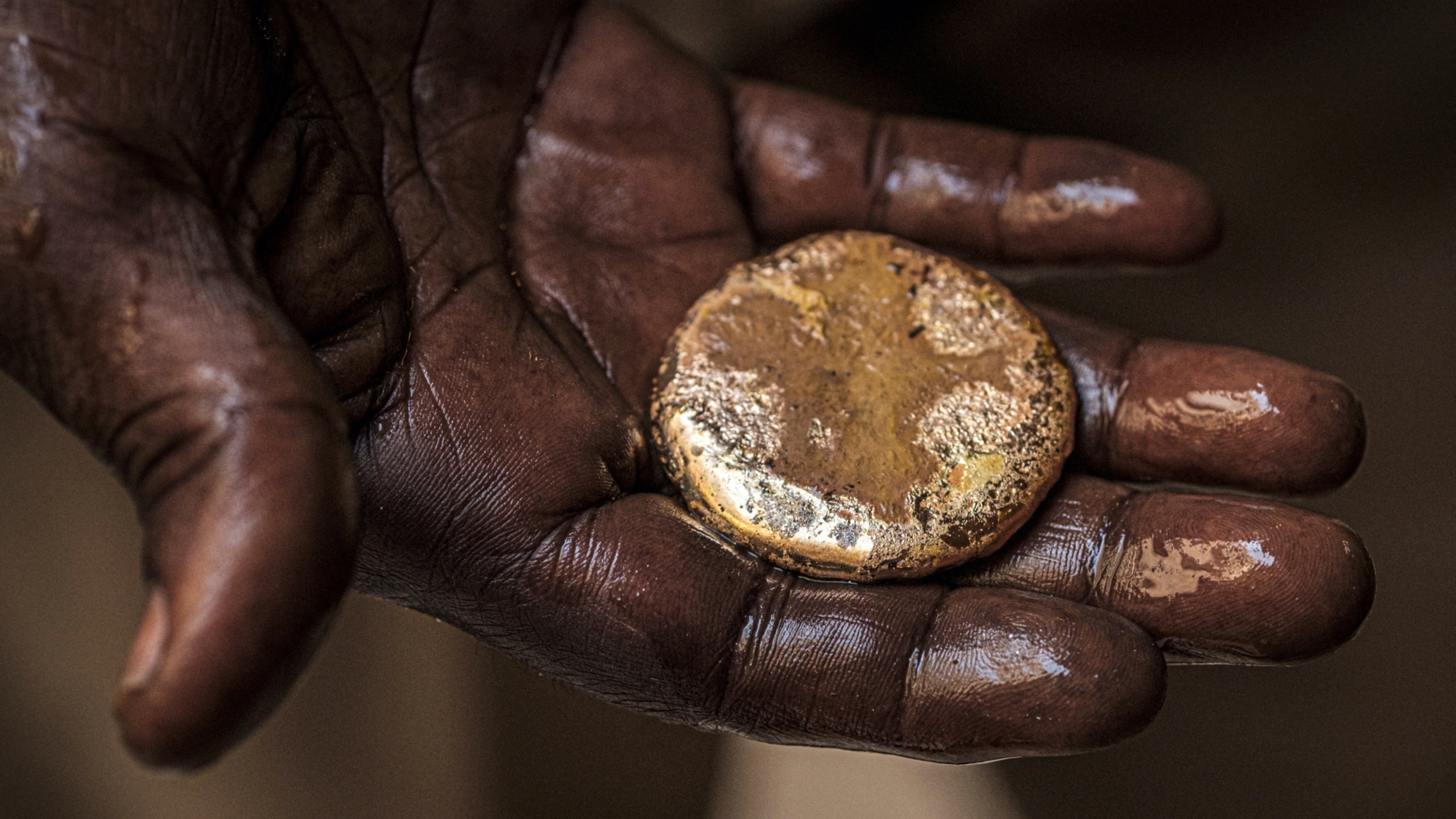
Sudan’s military leader General Abdel Fattah al-Burhan issued an order preventing the search of a Russian military plane suspected of smuggling gold, a former Sudanese anti-corruption official has told the New York Times.
As part of an investigation that sheds further light on Russian involvement in Sudan’s gold mining operations, the former official said that on 23 June 2021, a Sudanese general, acting on an order from Burhan, prevented the search of a plane operated by the Russian military.
'The legend of Wagner is only a legend… I am not aware of any evidence that the Wagner Group exists'
- Yevgeny Prigozhin, Russian oligarch
Sudanese officials, who were part of an anti-corruption body that was dismantled after last year’s military coup, at the time suspected that the plane was one of a number of Russian military aircraft involved in smuggling gold directly from Sudan to Moscow.
The revelation comes as details of the involvement of the Wagner Group, a private military contractor with close links to the Kremlin, in gold mining across Sudan and its neighbouring countries continue to emerge. In Sudan, records show that the Russian mercenary network has secured lucrative Sudanese mining concessions that produce a stream of gold.
According to the New York Times, this worries US officials, who believe the concessions will boost Moscow’s $130bn gold stash, helping President Vladimir Putin’s administration circumvent the effect of economic sanctions imposed over the Ukraine war.
New MEE newsletter: Jerusalem Dispatch
Sign up to get the latest insights and analysis on Israel-Palestine, alongside Turkey Unpacked and other MEE newsletters
The legend of Wagner
Most Sudanese gold passes through the United Arab Emirates. Unofficial data from the UAE reported that over $1.7bn of Sudanese gold landed in Dubai last year, representing a little less than half the value of all Sudan’s exports.
Western officials say Yevgeny Prigozhin, a Russian oligarch known as “Putin’s chef” because his restaurants have hosted dinners for the Russian president and accompanying foreign dignitaries, runs the Wagner Group. Prigozhin denies the claims.
“I am not aware of any evidence that the Wagner Group exists,” he told the NYT.
“The legend of ‘Wagner’ is only a legend,” he added, before drawing NYT reporter Declan Walsh’s attention to the existence of a “group of admirers of the German composer and conductor Wilhelm Richard Wagner”.
Wagner has operated in Africa since 2017, becoming more involved in Sudan after a meeting in Sochi between Putin and then-Sudanese leader Omar al-Bashir.
Bashir, struggling to maintain his hold on power after almost three decades as president, told Putin that Sudan could be Russia’s “key to Africa”.
Citing information from the Dossier Centre and the Center for Advanced Defence Studies, the New York Times reported that within weeks of the November 2017 meeting, Russian geologists and mineralogists employed by Meroe Gold arrived in Sudan.
They were followed by Russian defence officials intent on securing a naval base for Moscow on Sudan’s Red Sea coast, an aim that is still being pursued.
The US Treasury Department says Meroe Gold is controlled by Prigozhin, though as with his purported links to Wagner, the Russian businessman has denied the claim, telling the NYT he has “nothing to do” with the company.
In the 18 months that followed the arrival of the Russian geologists, Meroe Gold imported 131 shipments into Sudan, the NYT reported, citing Russian customs records. These shipments included mining and construction equipment, as well as military trucks, amphibious vehicles, two transport helicopters - one of which was later photographed in the CAR - and a 1956 Cadillac.
Prigozhin’s jet then arrived in Khartoum carrying a delegation of Russian military officials, before returning to Moscow with senior Sudanese defence officials, according to flight data obtained by the Russian newspaper Novaya Gazeta.
Assisted massacres
One of those Sudanese officials was the brother of General Mohamed Hamdan Dagalo, leader of the Rapid Support Forces (RSF) militia, which grew out of Darfur’s feared Janjaweed militias.
Dagalo, widely known as Hemeti, is a key player in Sudan’s gold mining operations. About 70 percent of Sudan’s gold production - which has increased rapidly since South Sudan won its independence in 2011, taking its oil wealth with it - is smuggled out of the country, with Hemeti and his family benefiting from much of it.
The RSF leader is now Burhan’s deputy, although the two military leaders are thought to be at odds and have different sources of power and income.
Wagner Group mercenaries, diplomatic sources told MEE, have fought alongside the RSF, helping them continue to suppress Sudan’s pro-democracy revolutionary movement.
In February, as Russia was invading Ukraine, Hemeti was in Moscow for a week-long visit, where he met with Russian Foreign Minister Sergey Lavrov and Alexander Fomin, Moscow’s deputy defence minister.
At the time, Cameron Hudson, a former US diplomat and CIA analyst, told MEE that: “There are extensive rumours that Hemeti took with him in excess of $30m in Sudanese gold to Russia and has signed new gold mining deals with Russian interests.”
A source in the RSF told MEE that Hudson’s claims amounted to nothing more than “propaganda”.
Now, the New York Times has reported that on 5 June 2019, two days after a massacre in Khartoum that left at least 128 protesters dead and was led by the RSF, Meroe Gold imported 13 tonnes of riot shields, as well as helmets and batons, to a company controlled by Hemeti’s family.
Middle East Eye has reported recently from Central African Republic (CAR), where eyewitnesses said that Russian fighters belonging to the Wagner Group perpetrated a massacre in March, killing artisanal gold miners from Sudan and other neighbouring countries.
Survivors of the mass killing walked for days to escape, crossing the border into Chad and making their way to the Darfur region of Sudan.
This article is available in French on Middle East Eye French edition.
Middle East Eye delivers independent and unrivalled coverage and analysis of the Middle East, North Africa and beyond. To learn more about republishing this content and the associated fees, please fill out this form. More about MEE can be found here.


